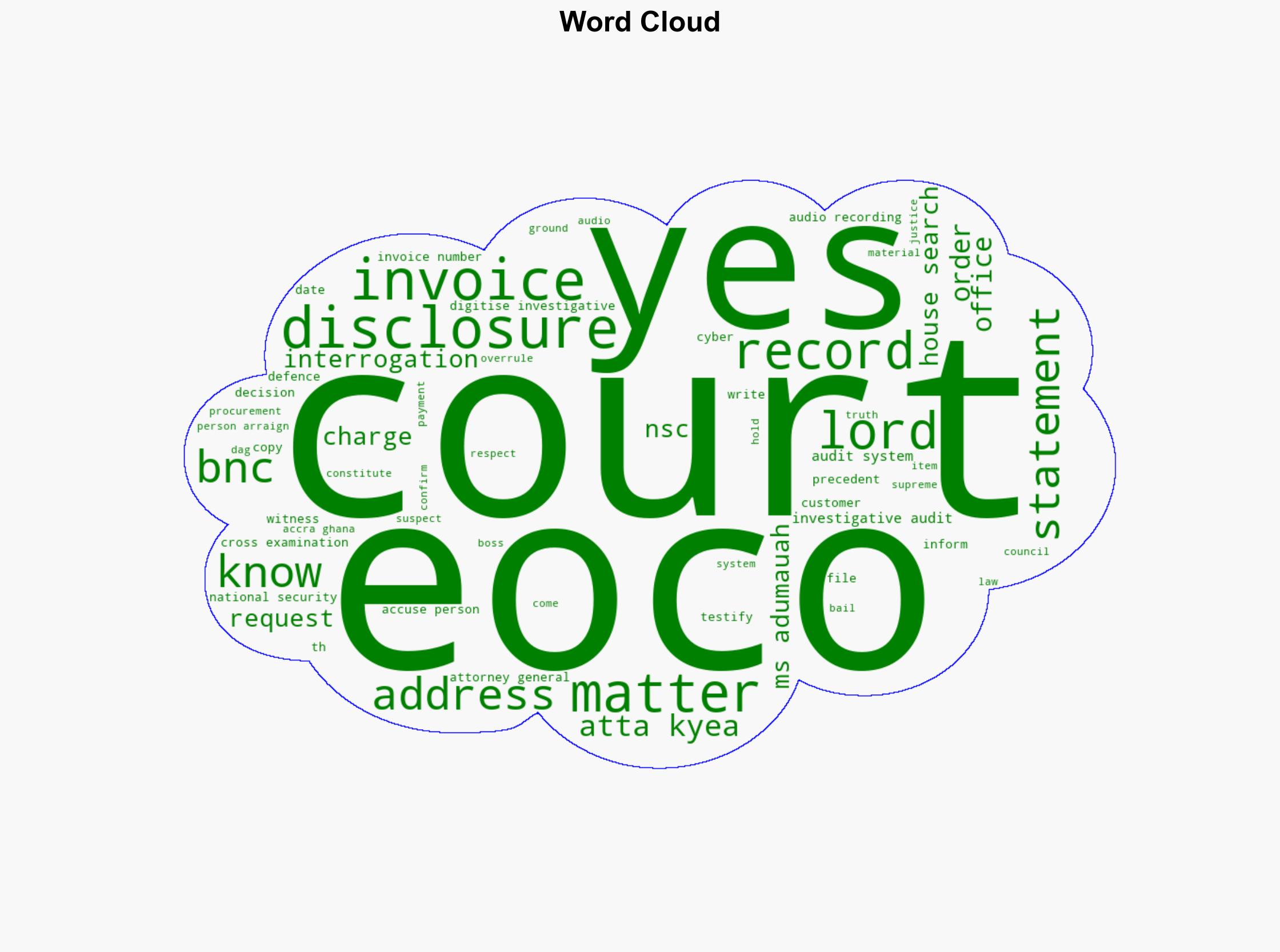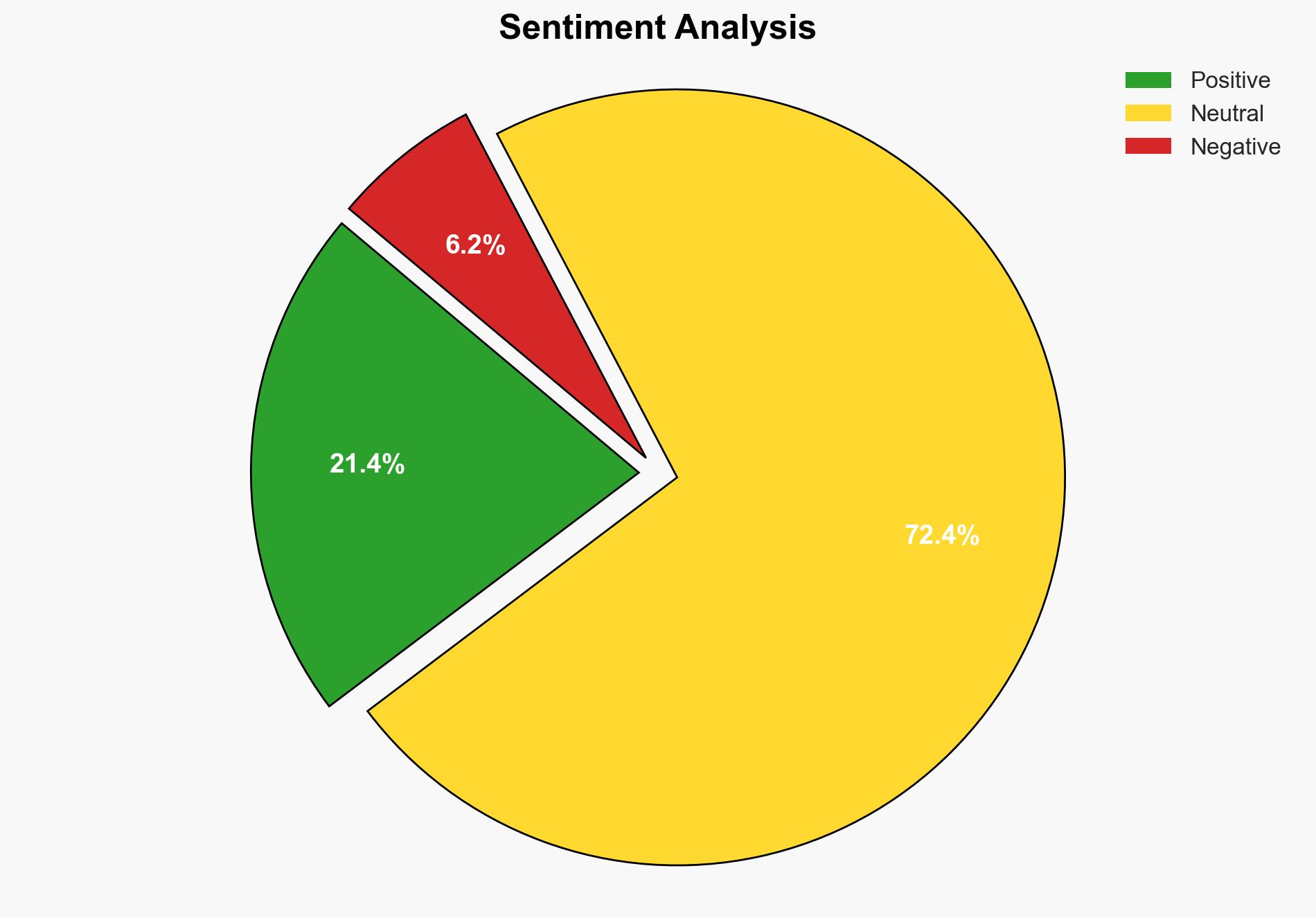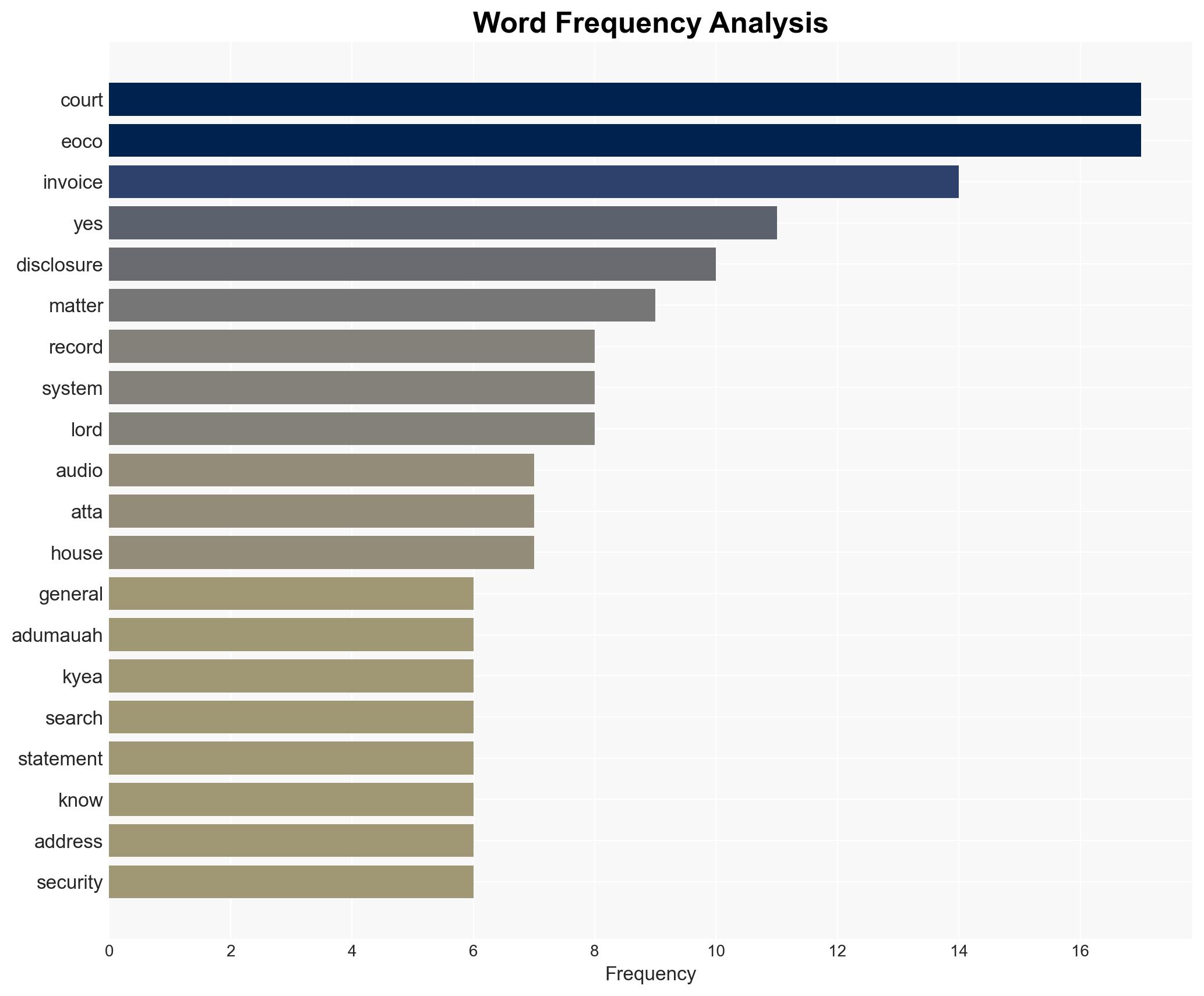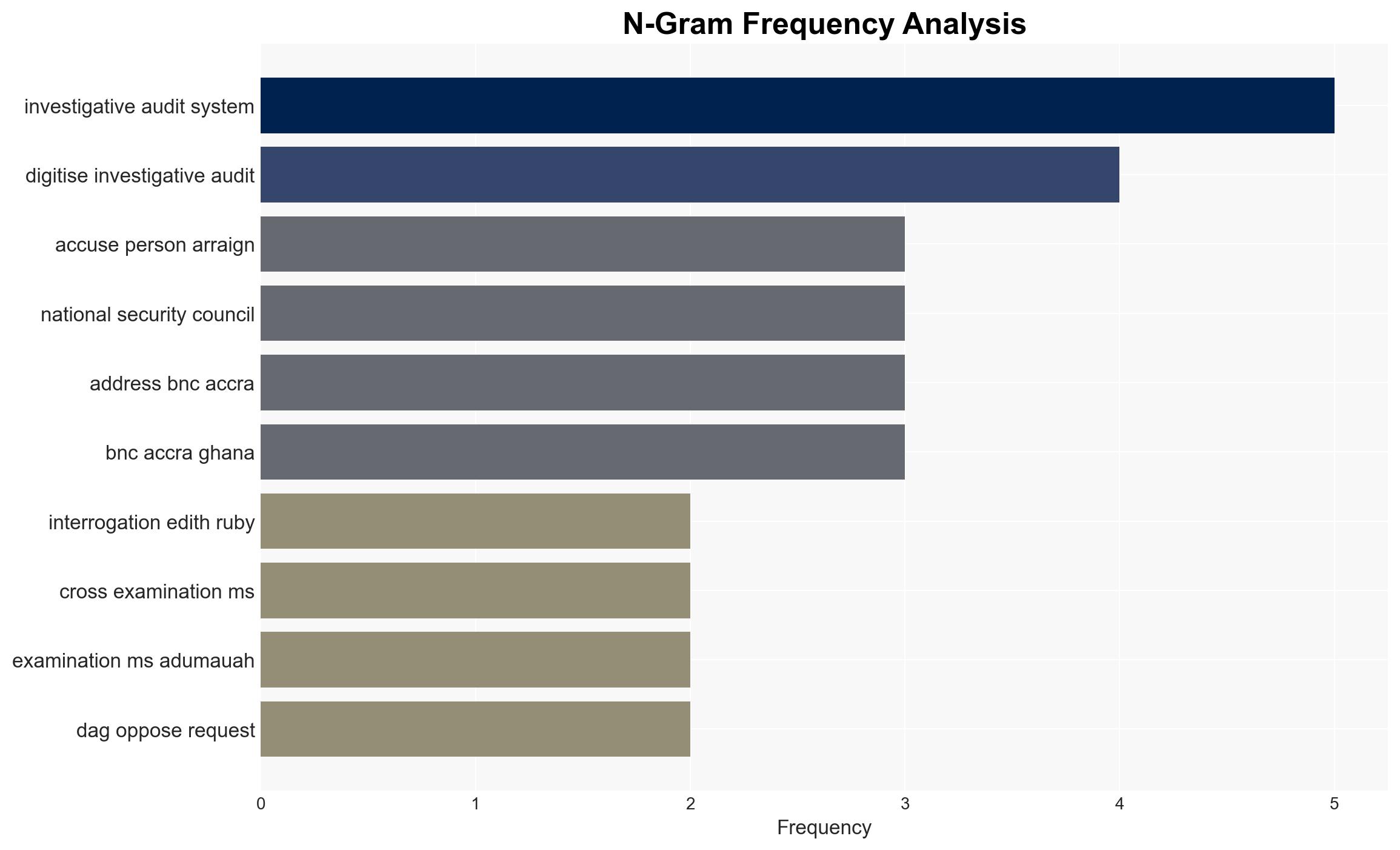Court Orders EOCO to Produce Audio Recording in Case Involving Former NSB Boss – Thechronicle.com.gh
Published on: 2025-11-14
AI-powered OSINT brief from verified open sources. Automated NLP signal extraction with human verification. See our Methodology and Why WorldWideWatchers.
Intelligence Report: Court Orders EOCO to Produce Audio Recording in Case Involving Former NSB Boss – Thechronicle.com.gh
1. BLUF (Bottom Line Up Front)
The court’s decision to order the Economic and Organised Crime Office (EOCO) to produce an audio recording of the interrogation of Edith Ruby Adumauah, former head of finance at the National Signal Bureau (NSB), suggests potential procedural irregularities in the investigation. The most supported hypothesis is that the audio recording may contain exculpatory evidence that could impact the trial’s outcome. Confidence in this hypothesis is moderate due to limited direct evidence and potential biases in the legal proceedings. Recommended actions include monitoring the trial for further developments and assessing the implications of the court’s decision on the credibility of EOCO’s investigative processes.
2. Competing Hypotheses
Hypothesis 1: The audio recording contains evidence that could exonerate the accused, suggesting procedural lapses or biases in EOCO’s investigation.
Hypothesis 2: The audio recording is unlikely to significantly alter the trial’s outcome, and the court’s order is a procedural formality to ensure transparency and fairness.
Hypothesis 1 is more likely given the defense’s insistence on the recording’s materiality and the court’s decision to overrule the prosecution’s objection. However, the lack of public access to the recording limits the ability to confirm its content.
3. Key Assumptions and Red Flags
Assumptions include the belief that the court’s decision is based on substantive legal grounds rather than external pressures. A red flag is the potential for bias in EOCO’s investigation, as suggested by the defense’s argument. Deception indicators include conflicting narratives between the defense and prosecution regarding the recording’s relevance.
4. Implications and Strategic Risks
The court’s decision may undermine EOCO’s credibility, potentially affecting its future investigations and public trust. Politically, the case could escalate tensions if perceived as a politically motivated prosecution. Economically, any revelations of misconduct could impact investor confidence in Ghana’s regulatory environment. Informationally, the case could be leveraged by opposition groups to challenge the government’s integrity.
5. Recommendations and Outlook
- Monitor the trial for further developments and assess the impact of the audio recording on the case’s outcome.
- Engage with legal experts to evaluate the potential implications of the court’s decision on EOCO’s investigative practices.
- Prepare for potential political fallout by developing communication strategies to address public concerns.
- Best-case scenario: The recording exonerates the accused, leading to procedural reforms within EOCO.
- Worst-case scenario: The recording reveals significant investigative misconduct, leading to widespread public distrust and political instability.
- Most-likely scenario: The recording provides some exculpatory evidence, resulting in a prolonged legal battle with limited immediate impact.
6. Key Individuals and Entities
Justice John Eugene Nyadu Nyante, Edith Ruby Adumauah, Samuel Atta Kyea, Kwabena Adu Boahene, EOCO, Deputy Attorney General.
7. Thematic Tags
National Security Threats
Structured Analytic Techniques Applied
- Cognitive Bias Stress Test: Expose and correct potential biases in assessments through red-teaming and structured challenge.
- Bayesian Scenario Modeling: Use probabilistic forecasting for conflict trajectories or escalation likelihood.
- Network Influence Mapping: Map relationships between state and non-state actors for impact estimation.
Explore more:
National Security Threats Briefs ·
Daily Summary ·
Methodology





